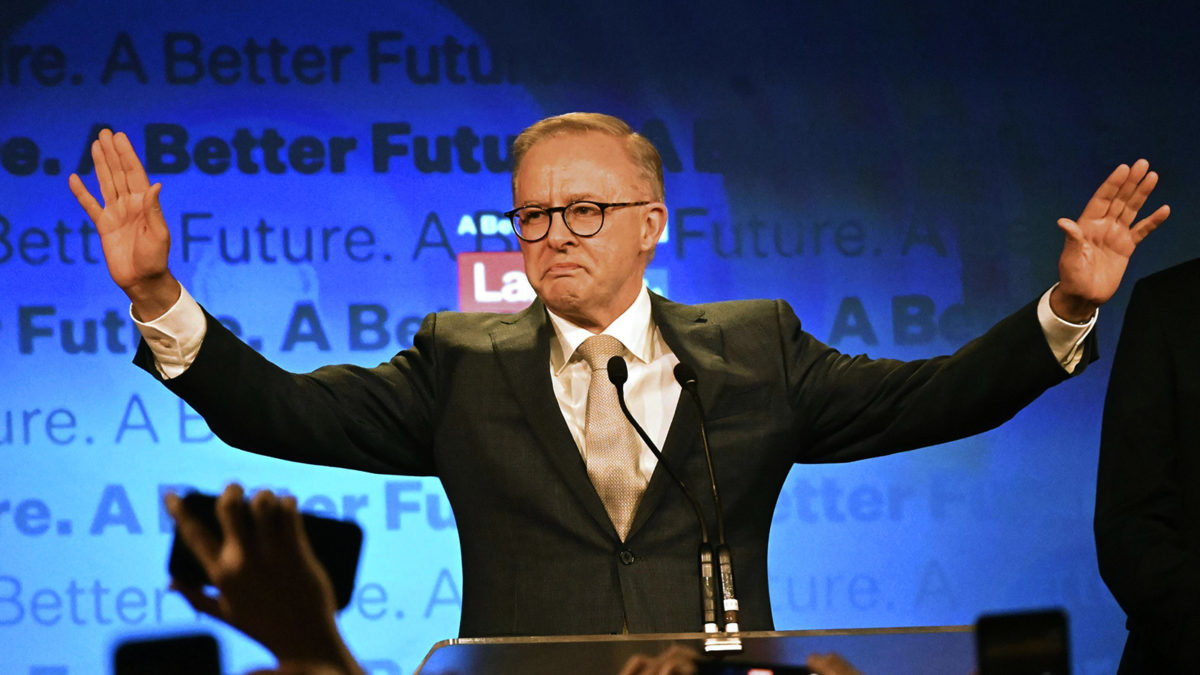Turn and face the change: A better future for super?
Labor’s election victory over the weekend arrives at a curious inflection point for Australia’s profit-to-member super funds. The last time Labor held government, in 2013, the mega-fund was still a long way off, as were the investment challenges it would create. Internalisation was just beginning. The biggest funds are now offshore investors, with far-flung international offices.
And as has been remarked in this publication before, superannuation has grown comfortable leaving its working-class roots behind. These are now large and highly sophisticated financial services organisations, white collar employers whose Sydney executives and staff are comfortably accommodated on the leafy North Shore.
That growing cultural similarity to the Coalition’s own financial heartland – the big four banks – did not result in super funds being drawn into the fold in the last nine years of that government. Nor did the massive pool of capital they command. Instead, it has been politically useful to characterise funds as “union-linked” or “union-backed”, so much so that the phrase has found its way into the lexicon of some of Australia’s biggest financial publications.
For a very long time, a deep suspicion has characterised relationships between the government and super. Funds have been told to stay out of the discussion on the energy transition by no less than the erstwhile superannuation minister Jane Hume, while the approach to the implementation of Your Future, Your Super (YFYS) was hardly collaborative.
Certain executives will be glad that political staffers no longer call them once a week to excoriate them for supposed failings on cost. If there is one cost from the last nine years, it has been the opportunities for co-operation lost to an uninterested government. Some managers report a palpable sense of relief when meeting with investment teams.
Already the excitement has started, particularly from those infrastructure managers who have made a name for themselves in renewables. With a real framework for an energy transition, which the Greens will no doubt demand, domestic and international asset owners who have been wary of investing into Australia’s market – characterised recently by government intervention and massive subsidies to prop up fossil fuels – will have the regulatory certainty required to plan for a cleaner future.
This is usually what comes with a new government; it still has that new government smell, and has not yet descended into the factional in-fighting that has undercut the efforts of so many others. Give it time. Until then, imaginations can run wild.
Though these beliefs are not without basis. Senior Labor figures have spent the last several months talking up the party’s track record directly to the industry, with former Treasurer and current national president (and Cbus chairman) Wayne Swan calling for super to play a greater role in what is expected to be a period of economic turbulence.
There will be plenty in the industry who are happy on a visceral level to see Tim Wilson, erstwhile chair of the standing committee on economics and a politician with a deep-seated ideological dislike of super, deposed by a teal. Jason Falinski, a dabbler in the same talking points, was also knocked out of his electorate. Josh Frydenberg, who spearheaded the inclusion of the investment veto power in the Your Future, Your Super reforms – and the reforms themselves – suffered the same fate. Of the notable super partisans, only Andrew Bragg and Jane Hume remain, and it’s unlikely there’ll be much in the way of big-thinking superannuation policy coming from the diminished opposition.
Likely incoming financial services minister Stephen Jones pledged at the ASFA conference in April (and before) that he would represent both sides of the industry – retail and “profit to member” – and tweak the YFYS performance test after it has run a full cycle. He will not be “throwing the baby out with the bathwater”, though he has advanced the possibility that faith-based funds will receive an amnesty from the consequences of a second failure – if indeed any remain after the current wave of mergers.
Among certain true believers – a phrase applied equally to Labor’s heartland voters and those proponents of superannuation who view it as the eighth wonder of the world – there is the sense that, despite the way the two groups have grown apart, things will be (relatively) easy under Albanese. There is unlikely to be much hemming and hawing over the rise to 12 per cent, and “Home First Super Second” will obviously go the same way as most of the policies of Hewson’s “Fightback!”.
Albanese’s small target platform didn’t imagine any big picture policies for superannuation. With the immediate geopolitical and fiscal challenges the government is facing, it will likely be some time before they even begin to consider what the nation’s largest investors can do to help make Australia a “clean energy superpower” or kickstart local innovation through venture capital and startup funding. But for many, the clear air provided by Saturday’s win will be enough.











